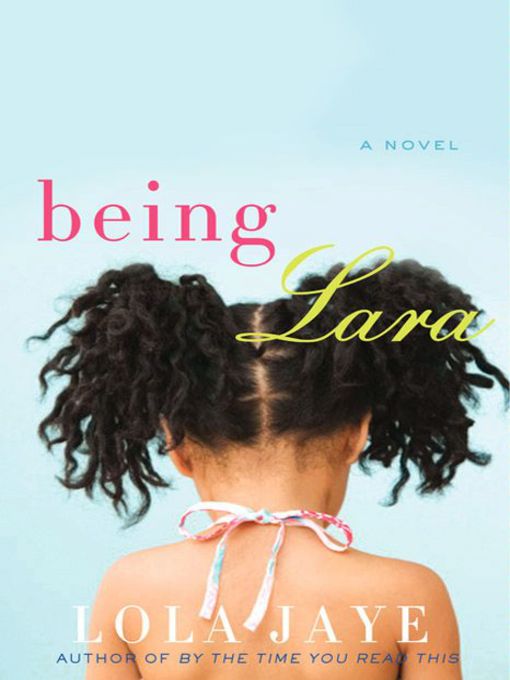
Being Lara
A Novel
کتاب های مرتبط
- اطلاعات
- نقد و بررسی
- دیدگاه کاربران
نقد و بررسی

March 26, 2012
Jaye's newest (after By the Time You Read This) is a stunningly emotional tale of adoption from the perspectives of the three women involvedâNigerian birth mother Yomi; white, British, adoptive mother Pat; and Lara, the daughter struggling to discover who she is. When Yomi, the wife of a village chief, becomes pregnant by another man, she decides to give the little girlâOmolaraâup for adoption to avoid scandal. After once-successful pop-star Pat has a miscarriage and can't get pregnant again, she and husband Barry journey to the Motherless Children's Home in Nigeria and return to England with a new daughter. Raised by loving parents, but teased as an outsider throughout her childhood, Lara nonetheless grows up to be a strong, if emotionally reticent, young lady. At her 30th birthday party, however, a mysterious woman in traditional Nigerian dress arrives, and Lara is flung into a whirlwind of illuminating and distressing self-discovery, as she comes to terms with a heritage she's never known, while more fully embracing the one she was raised in. Jaye does an outstanding job of laying out a complex story, while giving each character an honest voice with which the concomitant fears and hopes of adoption are brilliantly expressed.

March 15, 2012
An adopted child turns 30 and confronts her African origins. Lara, a successful London web entrepreneur, has always felt slightly dislocated, an anomie which has expressed itself in mild OCD symptoms. Growing up in Essex, England, with her adoptive white parents, she's had to cope with racist slurs and narrow-minded neighbors. Worse, she's never had an adequate answer to the question that continues to unsettle her as true adulthood looms--why did her African mother abandon her? Lara's two mothers each have their narrative say. Pat (formerly one-hit-wonder rock star Trish) has been estranged from her own family ever since she adopted a black child. Yomi, Lara's birth mother, was unwillingly married off to a powerful chief in her village near Lagos, Nigeria. Her true love, Henry, had disappeared, but returns long enough to impregnate her. The revelation of how and why, exactly, Lara wound up in the Motherless Children's Home, where Pat and her husband Barry, visiting on a charity mission, found her, is withheld until novel's end, presumably to generate suspense in a plot whose momentum otherwise lags. By her 30th birthday, Lara considers herself thoroughly English--her longing to meet her African mother has diminished. But just as she is about to blow out the candles on her birthday cake, a mysterious woman in a head wrap appears at her parents' door. Lara (nee Omolara) spends the rest of the novel avoiding her birthmother, but urged on by her best friend Sandi, and her boyfriend Tyler, Lara reaches out to Yomi's mother, who has accompanied her daughter to England in the quest for their lost progeny. As "Granny" introduces Lara to her Nigerian heritage, Lara finds the missing dimensions of her selfhood and steels herself to learn the truth about her perceived abandonment by Yomi. Unfortunately Lara's conflicts pale in comparison to those of Yomi, a character who would have absconded with the novel had she been allotted more space. An earnest but often cliched and sentimental coming-of-age story.
COPYRIGHT(2012) Kirkus Reviews, ALL RIGHTS RESERVED.

March 15, 2012
Lara Reid always knew that she was different. In her English town, most families did not have a daughter adopted from an orphanage in Nigeria. And to complicate matters, her mother, Pat, used to be a famous pop star, a fact that brings more scrutiny to Lara. As she grew up, Lara always thought about her birth mother; now, finally, on her 30th birthday, the mysterious woman appears. How Lara reacts, how she handles getting to know her Nigerian family, and how this complicates her relationship with her English parents are this novel's main plot points. We see the story from Lara's point of view, and then from that of each mother. The Nigerian touches are sweet and fascinating; Lara's birth mother's story is intriguing, and Lara's Nigerian grandmother is a hoot. VERDICT This story is at its most interesting when the viewpoint changes. At other times, Jaye's (By the Time You Read This) novel seems a bit trite, predictable, and simplistic. Still, readers interested in biculturalism and biracialism may enjoy her sophomore effort.--Beth Gibbs, Davidson, NC
Copyright 2012 Library Journal, LLC Used with permission.

March 15, 2012
In this emotionally ambitious yet underdeveloped title, Lara Reid doesn't realize she is a stranger in a strange land until her fifth birthday, when she suddenly understands she is different from everyone around her. As a young child plucked from a Nigerian orphanage and raised by white parents in England, Lara experienced the gamut of adoption issues, which plague every facet of her life, especially her attachments with others. Her life is a cool, structured bubble of collected calm until her thirtieth birthday, when her African birth mother shows up unexpectedly and tosses Lara's controlled life into upside-down chaos. Richly explored backstories about Lara's adoptive mother and her birth mother add needed exposure of Lara's tightly hidden self. Jaye's penchant for telling rather than showing works too well as a distancing device for Lara, but details about her inner life, families, friends, and Nigeria serve to intrigue. Readers who enjoy Shilpi Somaya Gowda, Cecilia Ahern, and Thrity Umrigar will want to read Jaye's (By the Time You Read This, 2009) latest novel.(Reprinted with permission of Booklist, copyright 2012, American Library Association.)

























دیدگاه کاربران